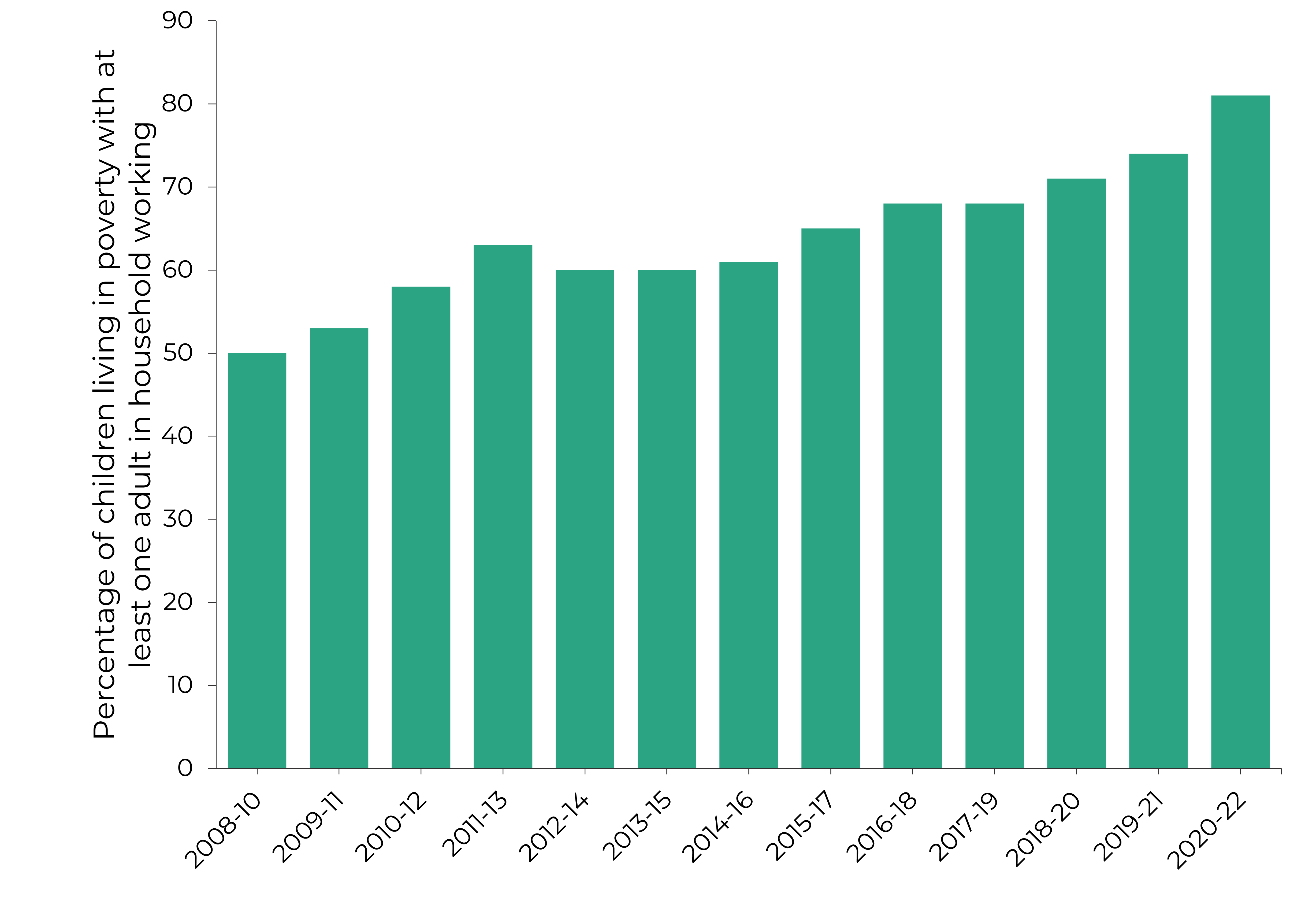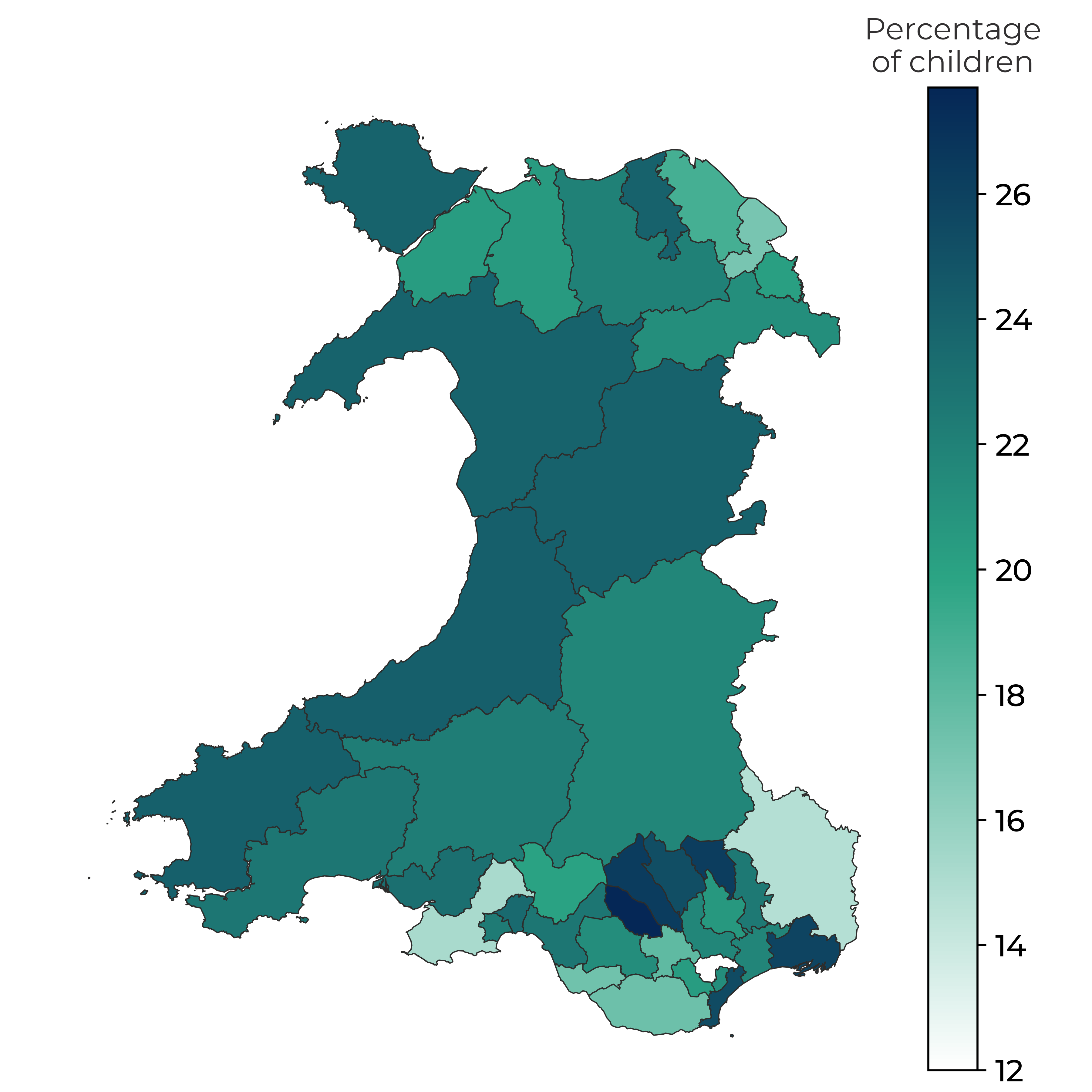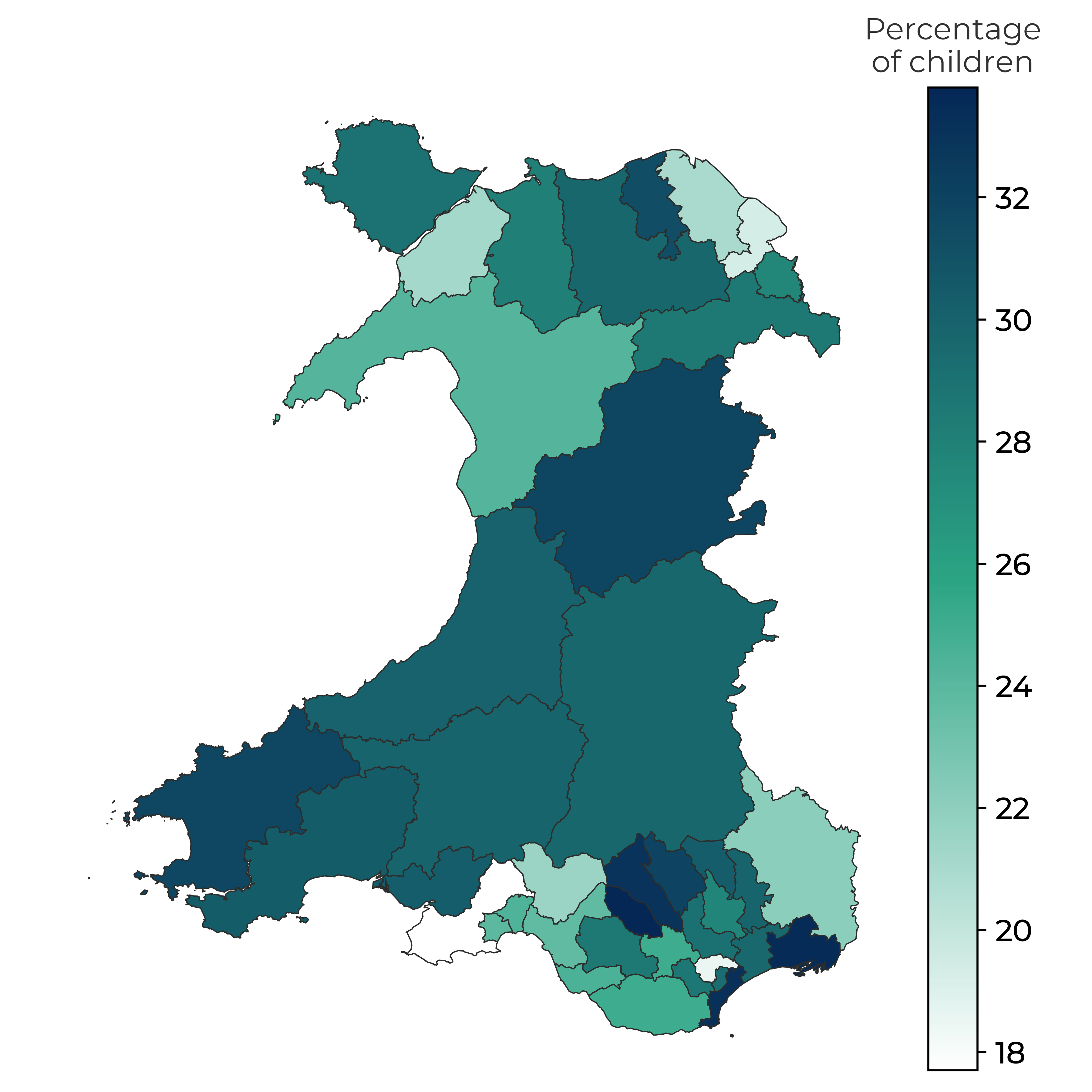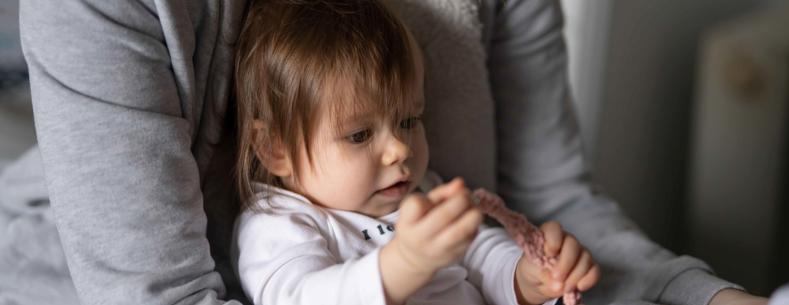Child poverty has been a persistent challenge for successive Welsh Governments, and the rising cost of living has only exacerbated that challenge. The Children’s Commissioner for Wales says that poverty is “the biggest issue affecting children in Wales, and tackling it effectively is the Welsh Government’s biggest task”.
Ahead of the Senedd’s Equality and Social Justice Committee starting its inquiry into child poverty today, what does the latest data tell us about child poverty? How is the Welsh Government tackling child poverty, and how will its new strategy aim to address it in a time of budgetary pressures?
What does the latest child poverty data tell us?
What is the official measure of child poverty?A child is considered to be in relative poverty if the income of the household they live in falls below 60% of the UK median (the median is the middle value in a list of numbers that have been arranged from smallest to largest). |
In Wales, children are more likely to be living in poverty than any other age group, and the child poverty in Wales rate has consistently been higher than in Scotland and Northern Ireland over the last 20 years.
The latest figures show that 28% of children in Wales are living in relative poverty once housing costs have been taken into account. The child poverty rate reduced during the early years of devolution, before rising again during the 2008 financial crisis, and has fluctuated ever since.
Percentage of children living in households with less than 60% of contemporary median household income after housing costs (3-year average), by country and English region
The percentage of children living in child poverty that live in a household where at least one adult works has increased substantially since the 2008 financial crisis. The latest figures show that over 80% of the children in Wales that live in poverty have at least one parent in work.

Source: Stats Wales, Children in relative income poverty by economic status of household (years relate to financial years – i.e. 2008-10 means the 2007-08 to 2009-10 financial years)
At a local level, we can see that children living in Rhondda, Cynon Valley and Blaenau Gwent are most likely to be living in poverty before housing costs. After housing costs have been considered, children in Rhondda, Newport East and Cardiff South and Penarth are most likely to live in poverty.
Percentage of children aged under 16 living in relative low income families by Parliamentary Constituency

Source: DWP, Children in Low Income Families - local area statistics
Percentage of children aged under 16 living in poverty (after housing costs) by Parliamentary Constituency

Source: Child Poverty Statistics - End Child Poverty Coalition
How does poverty affect children’s life chances?
Child poverty affects children’s life chances, educational attainment, health and future work prospects. Some of the main impacts are that:
- In 2021/22, pupils in Wales who were eligible for free school meals were 19 percentage points less likely to get an A* or A at GCSE than pupils not eligible for free school meals.
- Pupils eligible for free school meals were 28 percentage points less likely to get an A*-C grade at GCSE than pupils not eligible for free school meals.
- The child mortality rate in Wales is 70% higher for children in the most deprived groups than the least deprived children.
- The Millennium Cohort Study shows that children living in poverty are four times more likely to develop a mental health problem by the age of 11.
- There is a clear association between childhood deprivation and being unemployed and/or living in poverty as an adult, with the links between these at UK level being amongst the strongest of European countries.
How is the Welsh Government tackling child poverty?
While Council Tax Benefit and the Discretionary Assistance Fund are devolved to Wales, key social security levers are reserved to the UK Government, as is employment law. Despite this, the Welsh Government has a number of other levers to tackle child poverty under its control.
Since the start of this Senedd in May 2021, the Welsh Government has committed to free school meals for all primary school children, increased Education Maintenance Allowance, expanded access to the Flying Start Scheme in the most deprived communities, and started to expand free childcare for working parents of 2-year-olds.
However, its latest child poverty strategy progress report concluded that:
We have made significant investment in a range of policies and programmes to promote prosperity, prevent and mitigate poverty and reduce the number of children living in poverty in Wales. Despite this investment, poverty has remained a pervasive issue.
The Welsh Government commissioned research on effective anti-poverty strategies, policies and programmes from the Wales Centre for Public Policy to inform the draft child poverty strategy that it published in June. This research highlighted five important considerations for the Welsh Government – how its strategy prioritises and builds on existing efforts; the right policy mix to deliver these priorities; how bodies will work together and be accountable; how progress will be monitored; and how it involves the people it seeks to support.
The Welsh Government’s draft strategy consulted on five draft objectives:
- to reduce costs and maximise the incomes of families.
- to create pathways out of poverty so that children and young people and their families have opportunities to realise their potential.
- to support child and family wellbeing and make sure that work across Welsh Government delivers for children living in poverty, including those with protected characteristics, so that they can enjoy their rights and have better outcomes.
- to ensure children, young people and their families are treated with dignity and respect by the people and services who interact with and support them and to challenge the stigma of poverty.
- to ensure that effective cross -government working at the national level enables strong collaboration at the regional and local level.
What has been the initial response to the draft strategy?
While organisations have welcomed the Welsh Government’s commitment to policies that reduce child poverty such as universal free school meals, they have also suggested the draft strategy has room for improvement.
Barnardo’s Cymru has expressed disappointment that “the opportunity has not been taken to be far more ambitious in support of the children and families who need it most”.
The Bevan Foundation concludes that the draft strategy is “at its strongest in bringing together the existing programmes that are already being implemented and at its weakest on new ideas and initiatives”.
The draft strategy doesn’t include any measurable targets, instead the Welsh Government has said that it will use its national milestones to measure progress and seek independent advice on additional poverty indicators. The Children’s Commissioner commented that:
It’s hugely important that alongside a high-level child poverty strategy document the Welsh Government publishes a specific and measurable delivery plan. This needs to have clear targets showing how and when the Welsh Government will deliver specific interventions that meet the broad aims of their strategy.
What’s next?
The Resolution Foundation expects UK child poverty to be at its highest rate for 30 years in 2027-28, with larger families particularly affected by “the two-child limit, benefit cap and frozen LHA [Local Housing Allowance] rates”. Against this backdrop, the Welsh Government will face considerable challenges in its efforts to tackle child poverty. Is its proposed approach the best one to reduce child poverty within the wider UK context and the boundaries of its devolved powers?
You can follow the Equality and Social Justice Committee’s evidence sessions on Senedd TV.
Article by Gareth Thomas and Siân Thomas, Senedd Research, Welsh Parliament



























